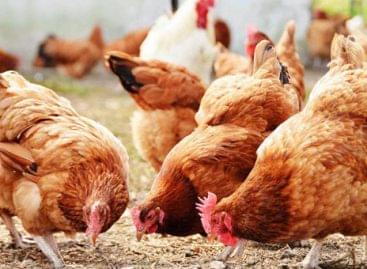Stores are refraining from cross-pricing – but the government is still watching
Bence Gerlaki, State Secretary for Tax Affairs, Consumer Protection and Trade at the Ministry of National Economy, and Izabella Talián, Head of the Trade Policy Department, assessed the effects of the margin reduction introduced in March and the issue of cross-pricing in their analysis prepared for VG.hu.
 In response to the spectacular rise in food prices, the government introduced margin reductions in thirty product categories from March 17, 2025. The aim of the measure was to prevent retail chains from selling the most basic foodstuffs with excessive profit margins. According to the regulation, the margin for designated products can be no more than the average level in January, but a maximum of 10 percent.
In response to the spectacular rise in food prices, the government introduced margin reductions in thirty product categories from March 17, 2025. The aim of the measure was to prevent retail chains from selling the most basic foodstuffs with excessive profit margins. According to the regulation, the margin for designated products can be no more than the average level in January, but a maximum of 10 percent.
According to data from the online Price Monitor, 90 percent of the foodstuffs affected by the margin reduction have become cheaper in the past two months, with an average price drop of 19.7 percent. This has already been reflected in the inflation indicators of the Central Statistical Office (KSH): in April, food inflation fell to 5.4 percent on an annual basis.
At the same time, many were concerned about the question of whether, as a result of the margin restriction, stores are raising the prices of other product groups, compensating for the lost profits – this is cross-pricing. However, the data from the Price Watch and the Central Statistical Office do not indicate any significant cross-pricing: the price of products outside the scope of the measure increased by only 1.1–1.2 percent on average between March 13 and May 12. Moreover, a significant part of this can be attributed to seasonal reasons or the expiration of promotions.
Analyzing the data further, it can be seen that the price of 60 percent of non-regulated products remained unchanged, 15 percent decreased, and only 25 percent saw an increase in price – mostly in the case of vegetables, fruits, such as apples, head cabbage, and Mediterranean fruits. Here too, it is more a question of weather and crop failure effects, not cross-pricing.
The government emphasizes that it will continue to closely monitor consumer and procurement prices of both regulated and non-regulated products. If justified, further intervention is possible. The goal remains the same: to reduce inflation, reduce burdens on the population, and maintain fair market operations.
Related news
Related news
The Store of the Future opens again at the SIRHA Budapest exhibition! (Part 1)
🎧 Hallgasd a cikket: Lejátszás Szünet Folytatás Leállítás Nyelv: Auto…
Read more >








